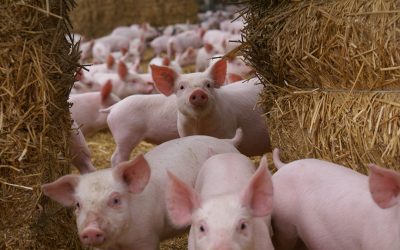Hardy new corn lines released
Six new inbred maize lines with resistance to aflatoxin contamination have now been registered in the United States by the Agricultural Research Service (ARS).
ARS plant pathologist Robert Brown and colleague Abebe Menkir, with the Ibadan, Nigeria-based International Institute of Tropical Agriculture, developed the lines.
The new lines are resistant to aflatoxins, which are toxins produced by the fungus Aspergillus flavus after it infects agricultural commodities such as corn.
Contamination of corn with aflatoxins causes financial losses for growers and is a potential health hazard to animals and humans.
The collaborators first screened and then combined the top aflatoxin-resistant lines found in the United States with those found in Central and West Africa.
Rapid screening
Brown has also used a highly effective and rapid “kernel screening assay” to separate resistant seeds from non-resistant ones.
The six lines have demonstrated good resistance against aflatoxin accumulation in the researchers’ laboratory and field tests.
The six maize lines have been described in the Journal of Plant Registrations. Seeds of the lines are being maintained at the ARS National Center for Genetic Resources Preservation in Fort Collins, Colorado.
After being certified “disease-free” for public release, the germplasm can be used in public or private breeding programs to develop aflatoxin-resistant corn lines.












